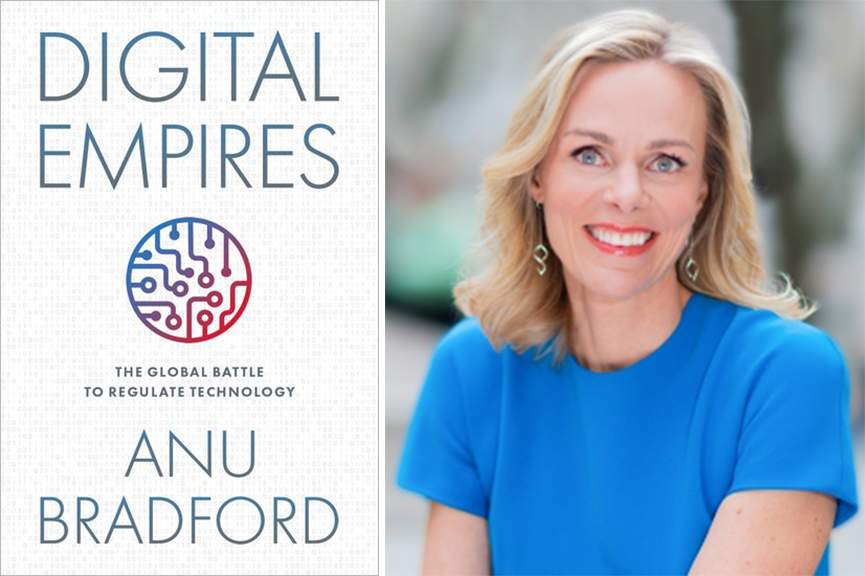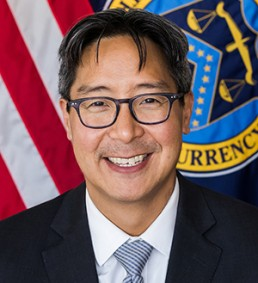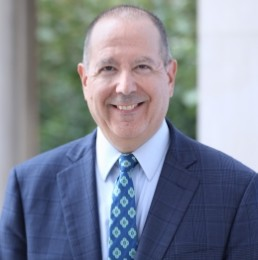BOOK TALK: How to Save the World in Six (Not So Easy) Steps: Bringing Out the Best in Nonprofits
Tuesday, November 14
6:00-8:30 PM
Columbia Business School, David Geffen Hall
645 W 130th St, Cooperman Commons
New York, NY 10027
We all depend heavily on nonprofits — for education, health care, social services, spiritual fulfillment, and much more. But unfortunately, too many nonprofits let us down, hobbled by inefficiency, infighting, and inertia. So what should we do? In his new book, "How to Save the World in Six (Not So Easy) Steps: Bringing Out the Best in Nonprofits," David Schizer, Harvey R. Miller Professor of Law and Economics and Dean Emeritus at Columbia Law School, exposes the root causes of these problems and explains how to solve them.
He also highlights impressive achievements by distinguished nonprofits, including 92NY's launch of Giving Tuesday. David was joined by key players in that launch — Asha Curran, CEO of GivingTuesday; Stuart Ellman, founder and general partner at RRE Ventures; and Henry Timms, president and CEO of Lincoln Center — to reflect on the secrets of its success.
The session was moderated by Sandra Navalli OAM '03, adjunct assistant professor and managing director of the Tamer Center for Social Enterprise.
General Admission: $25
Note: The first 300 in-person attendees will receive a free copy of the book.
*Refreshments and hors d'oeuvres included with RSVP. Registration closes on Sunday, November 12, or while supplies last. Ticket sales are final. Registration is required for building access.
Digital Empires: The Global Battle to Regulate Technology

Tuesday, October 24, 2023
5:00pm
Columbia Law School
Faculty House
64 Morningside Drive
New York NY 10027
The global battle among the three dominant digital powers—the United States, China, and the European Union—is intensifying. All three regimes are racing to regulate tech companies, with each advancing a competing vision for the digital economy while attempting to expand its sphere of influence in the digital world. In Digital Empires: The Global Battle to Regulate Technology, Anu Bradford explores a rivalry that will shape the world in the decades to come.
Across the globe, people dependent on digital technologies have become increasingly alarmed that their rapid adoption and transformation have ushered in an exceedingly concentrated economy where a few powerful companies control vast economic wealth and political power, undermine data privacy, and widen the gap between economic winners and losers. In response, world leaders are variously embracing the idea of reining in the most powerful tech companies. Bradford examines three competing regulatory approaches—the American market-driven model, the Chinese state-driven model, and the European rights-driven regulatory model—and discusses how governments and tech companies navigate the inevitable conflicts that arise when these regulatory approaches collide in the international domain. Which digital empire will prevail in the contest for global influence remains an open question, yet their contrasting strategies are now increasingly clear.
Digital societies are at an inflection point. In the midst of these unfolding regulatory battles, governments, tech companies, and digital citizens are making important choices that will shape the future ethos of the digital society. Digital Empires lays bare the choices we face as societies and individuals, explains the forces that shape those choices, and illuminates the immense stakes involved for everyone who uses digital technologies.
The panel will feature Anu Bradford, Henry L. Moses Professor of Law and International Organizations at Columbia Law School; Ryan Heath, co-author of Axios AI+; Adam Segal, Senior advisor in the Bureau of Cyberspace and Digital Policy at the Department of State; and Tim Wu, Julius Silver Professor of Law, Science and Technology at Columbia Law School.
What Happens When A Few Financial Institutions Control Everything?
A panel discussion on The Problem of Twelve by John Coates, Harvard Law Professor and former General Counsel of the Securities and Exchange Commission
A “problem of twelve” arises when a small number of institutions acquire the means to exert outsized influence over the politics and economy of a nation.
On September 19, 2023 The Richman Center and Columbia Global Reports hosted a panel discussion about The Problem of Twelve with the author, Harvard Law Professor John Coates, and a panel moderated by Columbia Global Reports Director Nicholas Lemann, including panelists: Michael Ewens, David L. and Elsie M. Dodd Professor of Finance at Columbia Business School; Jeffrey Gordon, Richard Paul Richman Professor of Law at Columbia Law School; and Dorothy Lund, Professor of Law at Columbia Law School.
What happens when a few index funds and private equity control a large and growing share of the American economy? The Big Four index funds--Vanguard, State Street, Fidelity, and BlackRock--control more than twenty percent of the votes of S&P 500 companies, a concentration of financial power that is unprecedented in America. Then there’s the rise of private equity funds, such as the Big Four of Apollo, Blackstone, Carlyle and KKR, which have amassed $2.7 trillion of assets, and are eroding the legitimacy and accountability of American capitalism, not by controlling public companies, but by taking them over entirely and bringing them outside the scope of the regulatory system. The result is that a few powerful financial firms control a large and growing share of the American economy. They are only beginning to use their power to the fullest extent, and politics will be an inevitable part of the response. The panelists will explore what this concentration of power means and what should be done to maintain our country’s long tradition of limiting the economic and political power of the few.
Remarks by Michael Hsu, Acting Comptroller of the Currency on Bank Liquidity Safety and Soundness Post-March 2023
Thursday, January 18, 2024
9:30AM -10:30AM EST
William and June Warren Hall, Room 207
1125 Amsterdam Avenue
Columbia Law School
Columbia Law School and the Richard Paul Richman Center for Business, Law and Public Policy are pleased to host Michael Hsu, the Acting Comptroller of the Currency, for his remarks regarding "Bank Liquidity Safety and Soundness Post-March 2023". Introduction by Lev Menand, Associate Professor of Law, Columbia Law School, followed by a Q&A.

Michael Hsu became Acting Comptroller of the Currency on May 10, 2021.
As Acting Comptroller of the Currency, Mr. Hsu is the administrator of the federal banking system and chief executive officer of the Office of the Comptroller of the Currency (OCC). The OCC supervises nearly 1,100 national banks, federal savings associations, and federal branches and agencies of foreign banks.
The Comptroller also serves as a Director of the Federal Deposit Insurance Corporation and a member of the Financial Stability Oversight Council and the Federal Financial Institutions Examination Council.
Prior to joining the OCC, Mr. Hsu served as an Associate Director in the Division of Supervision and Regulation at the Federal Reserve Board of Governors. In that role, he chaired the Large Institution Supervision Coordinating Committee Operating Committee, which has responsibility for supervising the global systemically important banking companies operating in the United States.
"Hot Topics Series: Supreme Court Roundup" - Moore v. U.S. (January 23, 2024)
Join David Schizer, Dean Emeritus and Harvey R. Miller Professor of Law and Economics at Columbia Law School for a discussion of Moore v. U.S. currently being decided by the United States Supreme Court.
Tuesday January 23, 2024
12:10pm-1:10pm EST
Jerome Greene Hall, Room 102A
Columbia Law School
Last month, the United States Supreme Court heard oral arguments in Moore v. U.S., a case that could have significant ramifications for the U.S. tax system. The Court granted cert to consider whether the Sixteenth Amendment authorizes Congress to impose a tax on the built-in gains on appreciated property even if the taxpayer has not sold the property or had another "realization" event. If the Court concludes that a tax on unrealized gains is not authorized, this holding could trigger a flood of litigation involving hundreds of billions of dollars and potentially lead to the invalidation of a number of provisions under current law. Another possibility is that the Court may sidestep this issue, since the facts of the case arguably are more about who can be taxed than about when they can be taxed. Join Professor David Schizer as he explains what's at stake in Moore, which is the most significant case about constitutional limits on the taxing power in many years.
Speakers:
David Schizer, Dean Emeritus and Harvey R. Miller Professor of Law and Economics, Columbia Law School
Moderated by Daniela Tisch, Managing Director of the Richard Paul Richman Center for Business, Law, and Public Policy.
The Future of Affordable Housing in the US

A prolonged crisis of affordability in housing contributes to a cost of living crisis in many global markets around the world. In the US, even amidst a doubling of mortgage rates, house prices continue to breach record highs, and those who are priced out of purchasing homes contend with record rents. Even if house prices (and shelter in the form of rent) should tumble, the number of factors which have led to this crisis in affordability are unlikely to dissipate any time soon.
In this timely public event at the Richman Center, we will explore the causal factors in affordability, and actively chart out solutions – in policy and in development – to this critical issue within our societies today. By bringing together housing policy experts, economists, investors, and developers, we aim to put forward practical solutions which can be truly bipartisan, and thus stand the test of political flux and imminent changes within the US government.
In our interactive debate and conversation with panelists Alexis Crow (Moderator), Partner and Global Head of PricewaterhouseCoopers’ Geopolitical Investing practice; Alicia Glen, Founder and Managing Principal of MSquared; Stijn Van Nieuwerburgh, the Earle W. Kazis and Benjamin Schore Professor of Real Estate and Professor of Finance at Columbia University’s Graduate School of Business; and Byron Carlock, former U.S. Real Estate Practice Leader, PricewaterhouseCoopers, we will explore key questions including:
- How have recent legislative changes improved the federal tool for affordable housing – the lower income housing tax credit (LIHTC)? How might this change amidst a change in administration?
- As the cost of providing the supply of housing has skyrocketed (in development as well as operating costs, including building materials; labor; and insurance), what policy changes do developers need to see in order to be incentivised to move more into the lower income space, and out of luxury high end developments?
- In considering our chronic shortage of supply of affordable housing, how might innovation in development be deployed to the space – such as modular housing?
- Looking beyond developers, and to employers, what innovative solutions are business leaders and investors implementing in our gateway cities in order to alleviate the shelter component of the cost of living crisis?
- How might such actions fulfill the ‘S’ in ESG investing?
- In the development landscape, what happens when the ‘E’ might conflict with the ‘S’?
- Recognizing the uncertainty in the economic environment, where are affordability crises most likely to be prolonged and acute?
- Looking around the world, where are there cities, states, and countries where the provision of affordable housing actually works? How might these solutions be applied effectively to the US market?
Thursday, April 4, 2024
6:00 p.m.-7:30 p.m. EST
Columbia Business School
Kravis Hall, Room 840
Reception immediately following (Kravis Hall, Room 1040)
First Annual Columbia Law School Banking Conference
Friday, February 16, 2024
9:00 a.m.–4:30 p.m.
Jerome Greene Hall, Room 103
Columbia Law School
The events of 2023 challenged the post-crisis regulatory framework for banking in the US and the EU, while raising new concerns about the proliferation of private credit and deposit alternatives outside of the traditional regulatory perimeter.
The First Annual Columbia Law School Banking Conference will bring together leading academic and regulatory leaders to discuss the state of money and banking today and the challenges posed by a fast changing economic and financial market landscape.
Keynote speakers Michael Barr, Vice Chair for Supervision at the Federal Reserve Board, and Dominique Laboureix, Chair of the Single Resolution Board of the European Union, will be joined by panels of distinguished speakers from the US and the EU.
Keynote: Michael Barr (Federal Reserve)
Fireside Chat: Michael Barr (Federal Reserve) and Kathryn Judge (Columbia University)
Panel 1: Lessons from SVB, Signature and First Republic
- Moderator: Todd Baker (Columbia University)
- Margaret Tahyar (Davis Polk)
- Jarryd Anderson (Paul Weiss)
- Anna Kovner (Federal Reserve Bank of New York)
- Tomasz Piskorski (Columbia University)
Keynote: Dominique Laboureix (Single Resolution Board)
Panel 2: Lessons from Credit Suisse
- Moderator: Emiliano Tornese (EC/EUI)
- Tobias Adrian (IMF)
- Wilson Ervin (US Treasury)
- Alain Girard (FINMA)
- Eija Holttinen (FSB)
Panel 3: Risks Outside the Regulatory Perimeter
- Moderator: Lev Menand (Columbia University)
- Natasha Sarin (Yale University)
- Morgan Ricks (Vanderbilt University)
- Andrew Metrick (Yale University)
- Sandra Lee (Treasury/FSOC)
- Lee Foulger (BOE)
The event is by invitation only and not open to the general public.
The public speeches by Michael Barr and Dominique Laboureix will be recorded and made available.
The remainder of the conference will not be recorded and will be subject to Chatham House rules.